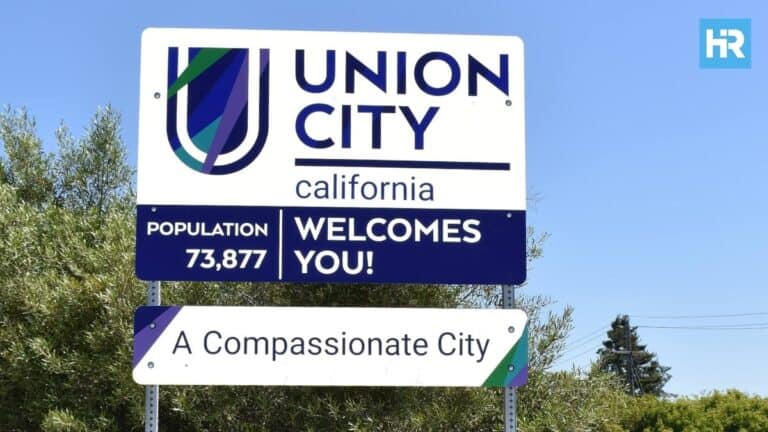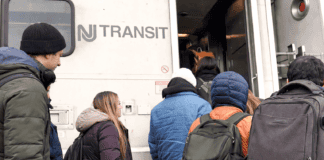
In May 2017, Union City, located in California’s Bay Area, took official action to protect its diverse population. On May 9, 2017, the City Council unanimously adopted a resolution declaring Union City a Compassionate City. This action followed a rise in community fear after the 2016 U.S. presidential election when federal immigration policy became stricter.
The Union City Human Relations Commission led the process. A subcommittee gathered input from the community and worked with the Union City Police Department to make sure the resolution would not interfere with law enforcement duties.
Union City confirmed that its position was not new, but it is now clearly stated that the city treats all people fairly and equally, regardless of race, color, national origin, or immigration status. This resolution officially limited the city’s involvement in immigration enforcement.
- Union City continues to protect immigrant rights and safety by refusing to assist with federal civil immigration enforcement unless legally required.
- The city follows California laws that limit cooperation with ICE, ensuring due process and community trust.
- During a tense congressional hearing, big-city mayors, including those from New York, Boston, Denver, and Chicago, defended sanctuary policies and rejected claims that such policies protect criminals.
The City Refuses to Enforce Federal Immigration Law
Under the resolution, Union City clearly stated that it would not assist with federal civil immigration enforcement. This means the Union City Police Department does not take part in immigration sweeps or organized efforts to arrest undocumented individuals.
The city does not enter into partnerships or written agreements with federal authorities for immigration enforcement. If police have suspicion or knowledge of a person’s undocumented status, that alone is not enough to make contact, detain, or arrest that person—unless immigration status is directly related to another criminal offense.
City employees and service providers are also directed not to ask about or consider immigration status when delivering services unless necessary. For example, immigration legal aid services may need that information, but most other services do not.
The resolution also includes policies on ICE detainers. Individuals will not be held solely on civil immigration holds. If someone has a pending criminal case and ICE provides a judicial arrest warrant signed by a judge, the detainer can be honored.
Union City does not allow the use of city resources to help create or maintain any kind of registry based on race, gender, religion, sexual orientation, national origin, or ethnicity that could be used for immigration enforcement.
Union City Complies With California State Laws
Union City follows several California state laws that guide how local law enforcement works with immigration authorities. These laws support the city’s Compassionate City resolution.
- The California Values Act (SB 54), passed in 2017, prevents local and state police from asking about immigration status or using local resources to help federal immigration enforcement.
- The Truth Act (AB 2792) requires that people in custody must be told that they have the right to refuse an interview with ICE. ICE cannot talk to them unless they give written consent. The law also provides transparency by requiring records of all ICE contacts in jails.
- The Trust Act (AB 4) stops ICE from placing holds on people in local jails unless they have been convicted of specific serious crimes. This law reduces the risk of people being held in custody based only on immigration status.
Union City continues to fully follow these laws. The city also encourages residents to visit the City’s Social Services webpage or contact the Alameda County Department of Public Health for more information and support.
Public Awareness and Implementation Efforts
Following the adoption of the Compassionate City resolution, Union City took steps to publicly communicate its position. The city installed 22 large roadside signs marking entry points into the city, identifying Union City as a Compassionate City. These signs are meant to reassure residents and visitors of the city’s inclusive stance.
A handout summarizing the resolution was created and distributed during community events. This document assists city commissioners in informing the public about the city’s policies and the protections for all residents.
Officials reported that the resolution has helped reduce tensions in the community during times of heightened concern about immigration and racial issues. The Human Relations Commission is considering developing a Compassionate City Plan to expand the resolution’s reach. Potential elements include public forums, outreach events, and “know your rights” seminars.
Despite limited financial resources, Union City has prioritized these initiatives to strengthen community trust and ensure all residents feel safe and supported.
Residents seeking support or more information can contact Lauren Sugayan, Communications and Marketing Manager for the City of Union City, at [email protected] or 510-675-5400.
Additional information and resources are available through the Alameda County Department of Public Health and the city’s Social Services webpage.
National Attention on Immigration and Local Resistance
While Union City continues implementing its local policies, the national debate over immigration policy remains deeply divided.
In a congressional hearing held by the House Committee on Oversight and Government Reform, House Republicans accused Democratic mayors of protecting undocumented immigrants through sanctuary policies.
The hearing lasted nearly six hours and featured testimony from the mayors of New York, Boston, Chicago, and Denver. Republicans claimed these cities were not cooperating with ICE and were enabling crime by refusing to enforce federal immigration laws. They cited specific criminal cases involving undocumented immigrants.
In response, the mayors explained that their cities comply with federal law by cooperating when valid judicial warrants are presented. They clarified that local governments are not required to enforce federal civil immigration law. They also pointed out that their policies are designed to build trust between immigrant communities and law enforcement, which improves public safety and crime reporting.
Crime statistics presented by the cities showed that crime rates have declined, not increased, in areas with sanctuary policies. The mayors emphasized that local public safety, health, and education should remain the responsibility of local authorities and not be compromised by unrelated immigration enforcement efforts.
Political Pressure on New York City Mayor Eric Adams
During the same hearing, Democratic lawmakers questioned New York City Mayor Eric Adams about his alleged cooperation with the Trump administration during a federal corruption investigation.
Several members of Congress questioned whether Adams had agreed to support immigration enforcement in exchange for leniency in the investigation.
Adams denied the claims, stating there was no agreement and no improper conduct. Aside from these denials, the inquiry into his actions continued throughout the hearing.
While Adams received minimal criticism from Republicans, Democratic representatives focused on possible ethics violations.









